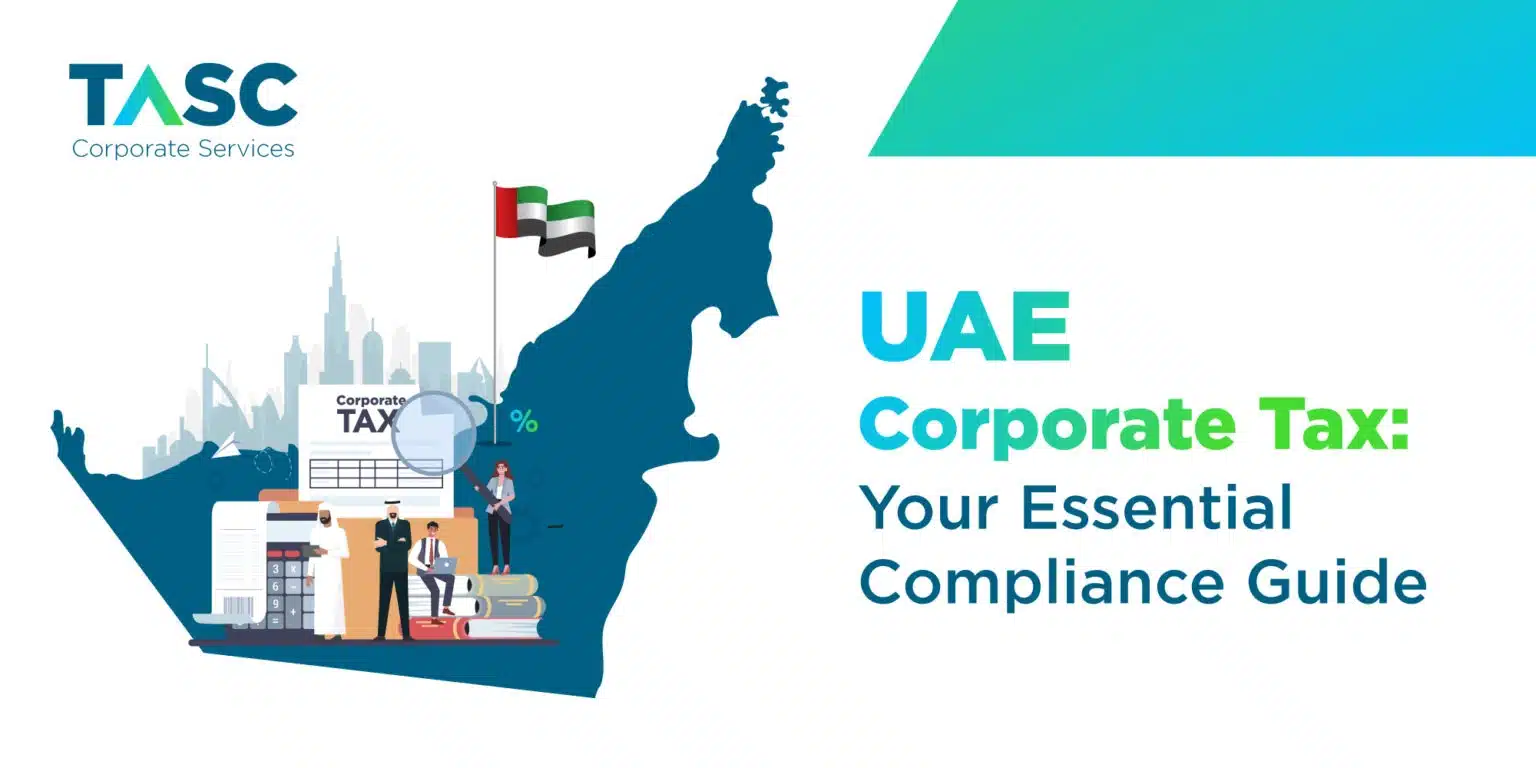When it comes to innovation, sustainability, and modernity, the UAE is by far one of...
Strategically placed, offering a business-friendly climate, and lucrative tax benefits, the UAE has long been a magnet for businesses worldwide. However, the new UAE corporate tax laws, becoming effective from June 1, 2023, will significantly affect all enterprises operating within its jurisdiction, regardless of size or sector.
Understanding tax rules can often seem like navigating through a complex maze. To clear the fog around these changes and their potential impact, we’ve compiled this blog post to help you decode the UAE’s new corporate tax laws.
By the end of this guide, you will have a comprehensive understanding of the UAE’s new corporate tax laws and regulations and feel better equipped to comply with them effectively.
The Evolution of Corporate Taxation in the UAE
In the early days, the UAE did not impose a corporate income tax. It can be attributed, in part, to the country’s reliance on oil revenue, which served as a significant source of government income. Moreover, the UAE government actively aimed to attract foreign investments, so introducing a corporate income tax would have been perceived as a deterrent.
However, the UAE took a significant leap by implementing a value-added tax (VAT) of 5% in 2018. It marked the country’s first venture into a broad-based consumption tax system. The introduction of VAT aimed to diversify the UAE’s revenue streams and enhance the competitiveness of its tax framework on an international scale.
In 2022, the UAE government announced its decision to introduce a corporate income tax (CIT) starting from 2023. The UAE government defended its decision by emphasizing the need to modernize its tax system and maintain its global competitiveness.
It is still too early to gauge the long-term impact of the CIT on the UAE economy. However, one thing is certain – the introduction of CIT represents a significant shift for the UAE and will have far-reaching implications for businesses operating within the country.
Corporate Tax Implementation – Aligning with International Standards
Despite concerns that CT could deter foreign businesses from investing in the UAE, the new tax is part of the government’s broader efforts to streamline its tax system and meet international standards.
By aligning with international standards, the UAE hopes to establish itself as a leading jurisdiction and attract more foreign investment. The government has mentioned that “a competitive CT regime that adheres to international standards, together with the UAE’s extensive network of double tax treaties, will cement the UAE’s position as a leading jurisdiction.”
Therefore, the introduction of CT should not be viewed as a move to discourage foreign businesses from investing in the UAE but instead as a step towards creating a modern, transparent and globally-recognized tax system that will attract more international investment to the country.
Other than adhering to international standards and establishing a competitive jurisdiction for a modern and stable tax system, the government has other objectives for implementing UAE corporate tax 2023 –
- The UAE aims to establish itself as a competitive jurisdiction by providing a modern and stable tax system which adheres to international standards.
- Corporate tax will help fund the UAE’s development plans, boost infrastructure projects, and support initiatives to create a diversified and knowledge-based economy.
- The UAE’s implementation of corporate tax follows its commitment to international tax transparency standards, including the Base Erosion and Profit Shifting (BEPS) Action Plan, which addresses the issues of tax avoidance and harmful tax practices.
- The UAE aims to eliminate harmful tax practices to ensure that its tax system is in line with international standards.
- Corporate tax revenue will play a crucial role in reducing the UAE’s reliance on oil revenue and promoting economic diversification.
UAE Corporate Tax Rate and its Applicability
With the implementation of corporate tax in the UAE, businesses are seeking clarity on the tax rates and who falls under the purview of the new tax regulations. Here’s what you need to know –
UAE Corporate Tax Rate –
The corporate tax rate in the UAE stands at 9% for taxable income exceeding AED 375,000. Income below this threshold is exempt from taxation. It’s worth noting that the UAE’s corporate tax rate is one of the lowest in the GCC region, second only to Bahrain.
Applicability of UAE Corporate Tax –
The new corporate tax law in the UAE applies to various entities and individuals, including:
- Businesses and other legal entities conducting activities within the UAE.
- Individuals involved in business activities within the UAE (specific details on this category are yet to be released).
- Foreign legal entities, also known as non-resident companies, with a permanent establishment in the UAE.
In addition, legal entities established in UAE Free Zones are considered “Taxable Persons” and must comply with corporate tax law. However, entities that qualify as Qualifying Free Zone Persons will enjoy a 0% tax rate on Qualifying Income and a 9% tax rate on Taxable Income that doesn’t qualify as Qualifying Income.
Non-resident individuals without a Permanent Establishment in the UAE or those receiving UAE-sourced income unrelated to their Permanent Establishment may also be subject to Withholding Tax at 0%.
Preparing for UAE Corporate Tax – What Businesses Should Do?
In order to ensure compliance with the new corporate tax regulations in the UAE, businesses should take the following steps –
- Get Familiar with the UAE Corporate Tax Law – It is crucial for businesses to thoroughly understand the Corporate Tax Law, along with any additional information provided by the Ministry of Finance and the Federal Tax Authority.
- Determine the Applicability of UAE Corporate Tax – Businesses should carefully review available information to assess if they fall under the scope of corporate tax.
- Understand Specific Requirements – Each industry may have specific requirements under the corporate tax regime. Businesses need to grasp these requirements, such as registration procedures, the accounting/ tax period, filing deadlines, and any necessary elections or applications that need to be made.
- Stay Up-to-Date – It is essential for businesses to stay informed about any updates or guidance issued by the Ministry of Finance and the Federal Tax Authority.
- Maintain Financial Records – Businesses must keep accurate financial records essential for corporate tax purposes. It includes maintaining income, expenses, assets, and other relevant financial information documentation.
Your Key To Compliance Starts With Us
Navigating through the new terrain of UAE’s Corporate Tax requires a thorough understanding of the law, its intricacies, and potential implications on your business. This is where TASC Corporate Services steps in as your trusted partner.
With over 15 years of experience in the UAE and KSA, we are well-versed in the landscape of local labour laws and compliance regulations. Our team of experts is well-equipped to guide you through the nuances of the newly introduced corporate tax regime, helping you determine its applicability to your business and outlining the next steps to ensure full compliance.
In these changing times, being proactive about tax compliance is not just a regulatory requirement but a strategic business move. Avoid the risks of penalties and fines and gain peace of mind by contacting us today.
Your journey towards UAE corporate tax compliance starts with us…
FAQs
Who qualifies for the UAE corporate tax?
The UAE corporate tax targets “Taxable Persons”. These include UAE incorporated companies and other legal entities managed and controlled within the UAE, individuals running a business activity specified by a Cabinet Decision, and non-resident legal entities that have established a permanent presence in the UAE.
Who all are exempted from the UAE corporate tax?
Entities exempted from corporate profit tax, as per the Ministry of Finance, include: government and government-controlled bodies, extractive and non-extractive natural resource businesses, public benefit entities, public and private pension and social security funds, and qualifying investment funds.
Subsidiaries owned and controlled by a government entity, qualifying investment fund, or public and private pension or social security fund also qualify for exemption. Businesses in liquidation or termination are exempt, as well as income from employment, investments, and real estate that does not require a license.
Salaries, residential real estate rental income, and investment income are not taxable. Freelancer income up to Dh1 million is also exempted, though some exemptions require meeting certain conditions.
Does the tax rate apply to income sourced from the UAE?
Certain types of UAE-sourced income paid to non-residents may be subject to a zero per cent withholding tax. Due to the 0 per cent rate, there is effectively no withholding tax due, and neither UAE businesses nor foreign recipients of UAE-sourced income have obligations related to registration and filing for withholding tax.





